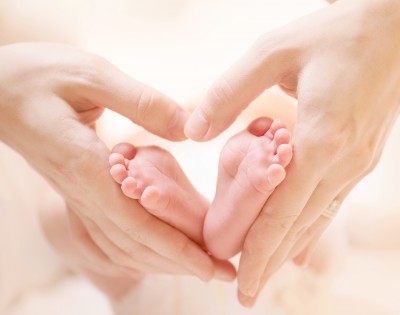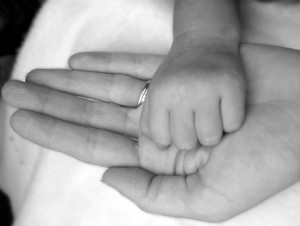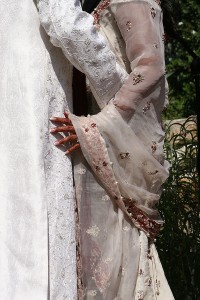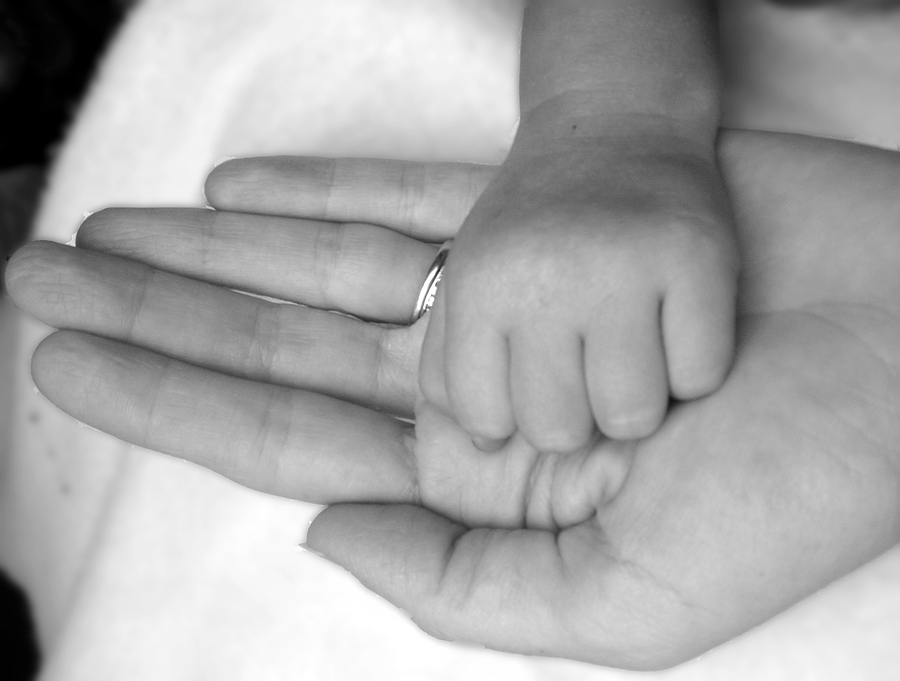By Anjali Joshi

Anjali Joshi, Staff Writer
Like many little girls, I began talking about my wedding and future children years before my first crush. I remember one particular conversation; I was 7 years old, and I very non-chalantly mentioned my third child, who I would name Diya, would be adopted. Before I could even finish describing my future plans, my mother shot me very stern look and muttered, “Don’t say that.” For years, I never quite understood why what I had said warranted such a forbidding tone in her voice.
As I grew older and took on the role of wife and mother, I realized there was a great deal of cultural stigma that was associated with the term adoption. In a culture that placed so much value on marriage, family, and fertility, the idea of adopting a child seemed to signify an inadequacy or shortcoming in a marriage.
Adoption was seen as a last resort – a path meant to be walked by couples who could not conceive a biological child. With feelings of inadequacy instilled by society, the few South Asian families that did choose to adopt often did so in secrecy and with little familial support, and, in some cases, even resistance from family. Parents with adopted children often tell me they couldn’t even fathom having to face the challenges of the adoption process without the support of family and friends. So, how was it that this stigma continued to exist in South Asian culture?
To take a deeper look into whether the cultural biases associated with adoption are still prevalent today, I had the pleasure of speaking to three South Asian couples who have adopted children. They have all asked to remain anonymous in this article. While the parents themselves were comfortable with revealing their own identities and the identity of their children, their extended families felt otherwise.

“Our parents still struggle with our choice to adopt our daughter, instead of trying to conceive a biological child. It has been an ongoing challenge; there’s that mindset that I’m not really her mother because I didn’t go through pregnancy and childbirth. It’s hurtful when I hear the comments in passing. She’s my greatest gift and no one can take that away from me.”
This mother’s recount brought on a flood of tears that made it difficult for me to continue the conversation.
I think about my own experiences in motherhood, and how little my identity as a mother has to do with my pregnancy and childbirth. Those short-lived months weren’t what made me fall head-over-heels in love with my baby. Those moments aren’t the ones that have changed my entire perception on life. No. It was each day thereafter – watching my son grow from a helpless newborn to a strong-willed toddler, the long nights I spent awake with a sick baby, the overwhelming exhaustion and the just as overwhelming joy and love — these were the moments that made me a mother.
These were the moments that made me a mother. And, each one of these unforgettable moments had little to do with our shared biology.
“We have chosen to keep our daughter’s adoption private,” another couple tells me. “We want her to be treated with the same love and care as her cousins. I am certain that if our extended families back home learn that she is adopted, she’ll be seen as lesser because she was not the same caste as us. People still feel strongly about that. I am her father. I won’t be able to bear her being treated differently. We tried conceiving for nearly a decade before our daughter came along. Ten years. That’s how long I waited to hold my little princess. It’s unfortunate that they’ll never understand the love between parents and their children has nothing to do with ‘blood’ ties.”

I know that feeling he’s talking about; holding that tiny body in your arms, and making a silent promise that you will do everything in your power to protect and care for that small child. But, what I can’t imagine is the fear in his mind – the fear that his daughter will not be given the same love, attention, care, and opportunities as other children like her. Sadly, for this couple, it’s a heartbreaking reality they’re attempting to dodge for as long as they possibly can.
The last couple I spoke to you had yet another unique experience – one that touches on another aspect of adoption. “While most of our family and friends were very supportive of our decision to adopt from the very beginning, there was and perhaps always will be doubts and concerns about adopting from an Indian orphanage.
There is so much emphasis in our culture about prenatal care and its importance on long term health. But, sadly, many of the children from Indian orphanages are delivered premature, are malnourished, and receive little prenatal attention. Our first child has cerebral palsy and our second child is seeing speech pathologist due to language delays. While no one vocalizes their sentiments in our family, there is an unspoken ‘What if?’ that lingers in the air. But, we pay no regard to it. Our children are unique, just like every other biological child out there. And, we will give them all the love that we have.”

After these brief but eye-opening conversations, it is apparent that cultural stigmas are still prevalent when it comes to adoption. It seems that South Asians from generations past are battling with mixed feelings; they want to support young couples with their journey as adoptive parents, but there are age-old beliefs that seem to prevail. Sometimes, their concerns and sentiments remain unspoken, and other times they are explicit. It is unfortunate that adoptive parents face this stigma in South Asian culture; instead of being congratulated for their bundles of joy, their families welcome the new additions with looks of sympathy and understanding.
The couples I spoke with all had different experiences, but they all unanimously agreed that their children have brought more joy and love into their families than they could have ever imagined. The cultural stigma was just another small bump in the road to adoption for them. Sadly, until the South Asian community becomes more accepting of different family structures, many adoptive parents and their families will continue to face this stigma.
What are your views on adoption? Have you ever considered it? Share your thoughts with our readers below!
©masalamommas and masalamommas.com, 2016-2017. Unauthorized use and/or duplication of this material without express and written permission from this site’s author and/or owner is strictly prohibited. Links may be used, provided that full and clear credit is given to masalamommas.com and Masalamommas online magazine with appropriate and specific direction to the original content.



I think its very odd that you could find three couples who would request to remain anonymous. This is very abnormal, certainly not the norm, even for Asian couples. People who adopt these days in North America are extremely open about whether they had a good or bad experience. Were these adoptions in India? By the time you have adopted you have been through so much that you don’t care what people think. You are elated to welcome this new child into your life. We are a South Asian couple (I am Punjabi, my husband Bengali) who have adopted two children, one domestically and one from China. Open adoptions are the norm in NA. Is this an old article? It seems to be written by someone who has not researched the topic well (perhaps an hour or so) and mostly holds on to many myths around adoption. The father’s comment wouldn’t have sent a chill down your spine if you researched the topic a bit more. I will humbly suggest a followup article to this where the myths of adoption be challenged.
Hi Neena,
First off, thanks for reading! I was really hoping this post would elicit some discussion about the topic by readers from both ends of the spectrum — those who know nothing about the adoption process and those who are experts.
To be clear, this piece was not meant to be a research article. It is a purely anecdotal piece where three couples shared aspects of the emotional and cultural challenges they faced following their decision to adopt a child. In addition, I shared my reactions as a parent who has not gone through the process and knows very little about it. My goal was to connect with parents who had a journey that was different than mine; and, as I state in my closing paragraph, they were eye-opening conversations for me.
Like any anecdotal piece, these are individual experiences and are not meant to be representative of every adoptive parents’ experience. In my opinion, every parent, adoptive or not, has a unique story to tell. We have done a few articles looking at various aspects of adoption. We looked at from the adoptee’s perspective: http://masalamommas.com/2014/06/17/the-lost-children-an-adoptees-story/ and we looked at another North American couple who very openly spoke about their adoption journey: http://masalamommas.com/2014/06/09/three-years-later-a-couples-journey-through-adoption/
I can’t comment about the anonymity aspect of the article, other than the fact that not all of the adoptive parents were North American.
Thanks again for sharing your experiences and feedback.
Anjali
For those of you who are South Asian, and considering adoption, I respectfully would like to point out that as a South Asian couple that began adopting children over six years ago, we have experienced little to no stigma from our community nor our family. People are so happy to see children so well cared for. Our immediate and extended families (cousins/aunts/uncles) on both sides are over the moon about these kids. We cannot even count the number of well wishes we have received. The has been our experience. If you are considering adoption, I would not let any fear of stigma (and I’m sure it may exist in some parts) stop you. Good luck to all!
absolutely Neena, any stigma for anything should never be a deterrent! As some of our amazing readers have shared their incredible journeys on adoption such as this couple here: http://masalamommas.com/2011/08/26/choice-adopt-one-couples-cultural-journey/ or even a journey to go througt adoption a second time around: http://masalamommas.com/2012/11/19/making-the-choice-to-adopt-the-second-time-around/ or even this US couple here: http://masalamommas.com/2014/06/09/three-years-later-a-couples-journey-through-adoption/. Really appreciate your comments as spoken from someone who’s gone through this. It’s important to share various perspectives and share stories on this very important issue and experience to help other moms in similar situations.
Anjum Nayyar
Publisher, masalamommas.com
Adopting a child to complete our family is a regular discussion in my household. And the one thing that is delaying and even possibly stopping the process is the fear of what the elders in our family will say. We have two biological children and although I know an adopted child will be loved and respected just as much, the topic of why adopt when you can have your own will always exist.
If you have very “traditional” elders in your family, it may take some conversation to make them understand why you chose to adopt. And that conversation can be hard to have.
Great article, I enjoyed reading it.